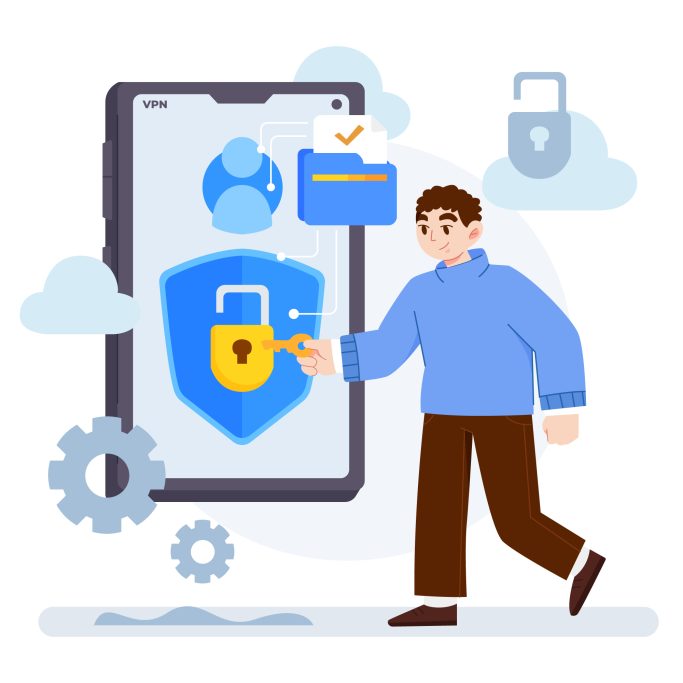What Measures Should I Take to Ensure Data Privacy and Security in Online Networking?
In the era of digital connectivity, online networking has become indispensable for professionals and businesses alike. However, with this increased reliance on digital platforms comes the paramount concern of data privacy and security. Safeguarding sensitive information in online networking environments is crucial to maintain trust and protect both personal and professional data. Here are some best practices and technologies to consider for ensuring data privacy and security in online networking.
1.Use Secure and Encrypted Connections: When accessing online networking platforms, always use secure and encrypted connections, indicated by “https://” in the website address. Avoid public Wi-Fi networks, especially for sensitive communications, as they are more susceptible to data breaches.
2.Implement Two-Factor Authentication (2FA): Enabling two-factor authentication adds an extra layer of security. Even if someone gains access to your password, they would still need a second form of verification, such as a code sent to your mobile device, to log in.
3.Be Mindful of the Information You Share: Exercise caution while sharing personal or professional information online. Avoid oversharing and limit the details you disclose publicly. Review privacy settings on networking platforms to control who can view your information.
4.Regularly Update Passwords: Frequently update your passwords for online networking platforms and ensure they are complex, comprising a mix of letters, numbers, and symbols. Avoid using the same password across multiple platforms.
5. Beware of Phishing Attempts: Stay vigilant against phishing emails or messages that impersonate legitimate networking platforms. Avoid clicking on suspicious links or downloading attachments from unknown sources.
6.Educate Team Members: In a professional setting, educate your team members about the importance of data security. Provide training on recognizing phishing attempts, setting strong passwords, and understanding the risks associated with public Wi-Fi networks.
7.Regular Security Audits: Conduct regular security audits of your online networking platforms. Ensure that the software and applications used are up-to-date with the latest security patches. Regular audits help identify vulnerabilities that could be exploited by cybercriminals.
8.Data Encryption and Secure File Sharing: Utilize platforms that offer end-to-end encryption for messaging and secure file sharing. Encrypted communication ensures that even if intercepted, the data remains unreadable to unauthorized users.
9. Collaborate with Trusted Platforms like Collude: When choosing an online networking platform, opt for reputable and trusted providers known for their commitment to data privacy and security. Research their security features, data encryption methods, and user reviews before making a selection. Collude, for instance, offers end-to-end encryption for messaging and secure file sharing. By collaborating with platforms like Collude, businesses can ensure a secure online environment for their networking activities, fostering trust among their members and enhancing overall data protection measures.
In conclusion, while the digital landscape offers vast opportunities for networking and collaboration, ensuring data privacy and security is non-negotiable. By following best practices such as using secure connections, implementing 2FA, and being cautious about information sharing, individuals and businesses can protect their sensitive data from cyber threats. Moreover, partnering with trusted platforms that prioritize data security, like Collude, provides an added layer of confidence in online networking experiences. As we navigate the digital realm, a proactive approach to data security remains the cornerstone of a safe and productive online networking environment.


